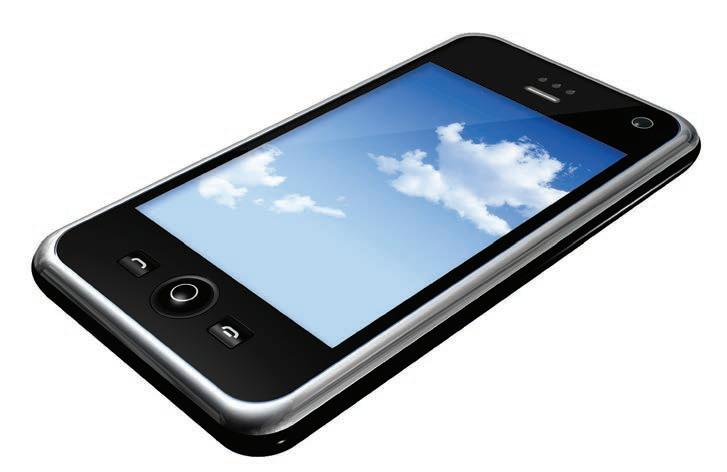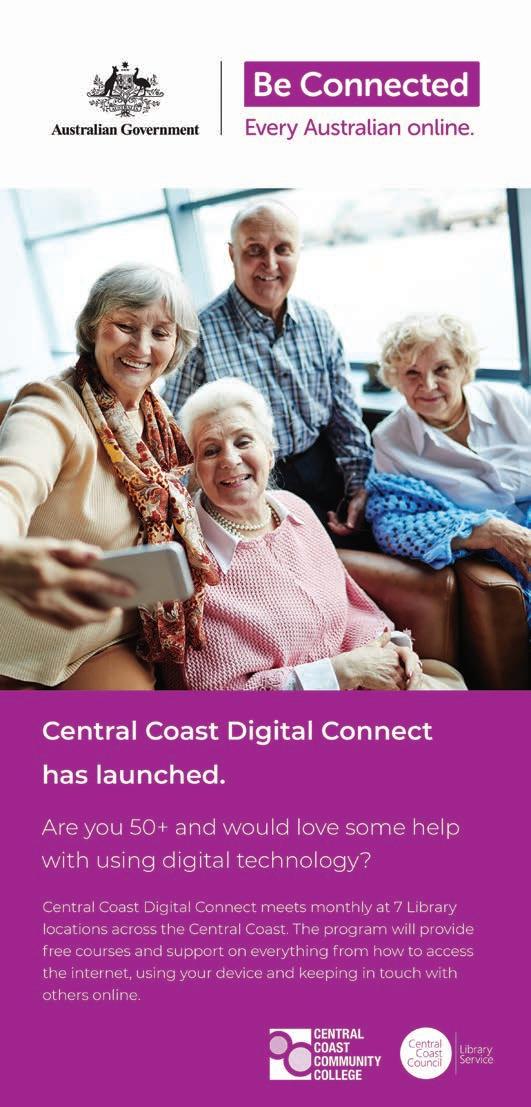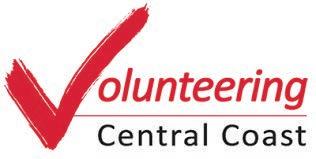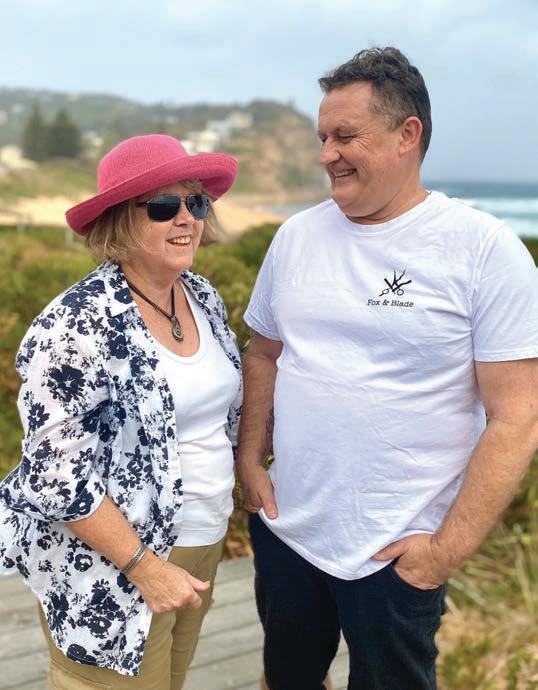
6 minute read
Urinary Tract Infection
BY DR GEORGIA PAGE
Aurinary tract infection (UTI) is an infection of part of the urinary tract which includes the urethra, bladder, ureter and kidneys. UTI’s are one of the most common infections in older adults with over 10% of women older than 65 years reporting one in the last 12 months. Seniors have a higher incidence of UTI’s than younger adults and symptoms can be more severe.
Classical symptoms of a UTI can include: Burning on urination Going to the toilet more frequently Urgency/the feeling of needing to urinate F ever Chills L ower abdominal/pelvic pain Back pain Cloudy and/ or smelly urine U rinary incontinence/leakage of urine Blo od in the urine Fa tigue Naus ea
Older adults however, are more likely to experience changes in behaviour such as confusion and agitation or may present with falls.
What causes Urinary Tract Infections? Most urinary tract infections occur when bacteria or fungi enter the urinary tract. The bacteria E coli (which is present in stool) is the most common type of bacteria that causes UTI’s and enters the bladder via the urethra. Infections are more common in females then males as they have a short uretha. In some cases, and if treatment is delayed, the infection can then spread to the kidney. Seniors are at more at risk of UTI’s because they may have; Weak er immune systems Ass ociated medical conditions that causes you to retain urine more such as Alzheimer’s Disease, Parkinson’s disease, Diabetes, prolapsed bladder or an enlarged prostate. Inc ontinence of the bladder or bowel. The pr esence of a urinary catheter A history of recurrent UTI’s. L ower levels of estrogen (in postmenopausal women)
Complications of UTI’s If a UTI is left untreated it can spread to the kidneys and cause damage. It can also causes sepsis which is when infection spreads to the bloodstream which if not treated can be life threatening. In the elderly it can lead to extreme confusion.
Diagnosis and Treatment If you or a loved one has symptoms or you suspect a urinary tract infection it is best to see a doctor who can check your urine. The urine sample needs to be a ‘’mid stream urine’’ and must be caught in a sterile jar in the middle of a urination not at the start (which can be tricky!). This is to make sure that the urine isn’t contaminated with other bugs that live around the surrounding skin. The urine sample is sent to the laboratory for testing to confirm if there is an infection and to determine which bug is present and which antibiotic is suitable for treatment. Urinary tract infections are treated by; Drinking plenty of water to help flush out the bladder. T aking a alkalinising agent (such as ural) to help reduce burning or stinging when going to the toilet P aracetamol or anti-inflammatories Antibiotics are usually prescribed if the doctor suspects or confirms a UTI to treat the infection quickly and prevent complications.
If recurrent urinary tract infections occurs, further medical tests may be required, so please see your doctor.
Prevention For those that get frequent UTI’s, methods to help prevent them can include: Drinking plenty of water Wiping from front to back after going to the toilet
U rinating immediately after sexual intercourse Av oiding caffeine and alcohol Do not ‘hold on ’ or delay going to the toilet when you need to . Vaginal estr ogen may reduce risk in post-menopausal women Pr eventative antibiotics (taking a low dose antibiotics every day for 3 – 6 months) Non antibiotic pr evention – Further scientific evidence is required but Cranberry , Methenamine salts, Ascorbic acid (Vitamin C), D-Mannose, and probiotics may be of benefit.
SUMMARY Urinary Tract Infections are one of the most common infections in the elderly It can cause symptoms such as burning, urgency, going to the toilet more frequently, cloudy or smelly urine, fevers and pain. In the elderly however if can cause non classical symptoms such as confusion, agitation and falls. If you suspect you have a urinary tract infection please see your doctor to prevent serious complications.
Georgia enjoys all aspects of general practice and has been working at Your Family Doctors at Erina for the last 12 years. The practice has lovely new rooms and has a fabulous team of Doctors and Nurses, some of whom are accepting new patients. They pride themselves on delivering good quality health care, with that special personal touch. For more information call 4365 4999, check the website www.yourfamilydoctors.com.au or like them on facebook.
Mobile phone detection cameras

Mobile phone detection cameras are targeting illegal phone use across NSW and include fixed and transportable trailermounted cameras. Together, these cameras will target illegal mobile phone use anywhere, anytime.
The detection system operates both day and night and in all weather conditions, using highdefinition cameras to capture images of the front-row cabin space of all vehicles to detect illegal mobile phone use.
The system uses artificial intelligence to automatically review images and detect offending drivers, and to exclude images of non-offending drivers from further action. Images that the automated

system considers likely to contain a driver illegally using a mobile phone are verified by authorised personnel.
As with other road safety camera programs in NSW, strict controls are in place to ensure images captured by the system are securely stored and managed.
Warning letters will be issued for the
While mobile phone detection cameras now operate, NSW Police continue to enforce illegal mobile phone use and issue infringements as part of regular operations.
first three months (from 1 December, 2019). Following this period, the penalty for offending drivers is five demerit points and a $344 fine ($457 in a school zone). The penalty increases to 10 demerit points during double-demerit periods.
LOVE DOGS? DOG MINDERS REQUIRED
Care for a dog in your own home from time to time and be
REWARDED $$ Security, wagging tail companionship and plenty of licks! Do You

Cancer Rehabilitation New spacious location dedicated to Cancer rehabilitation; individual & group prescribed exercise programs.
Kate Perkins, B.App.Sci (Occupational Therapy) helps people who have undergone surgery and related treatment for cancer gain recovery of strength, movement, and energy. » Lymphoedema monitoring pre/post cancer treatment » Assessment and management of Lymphoedema » Pinc & Steel Next Steps Exercise
Program » Scar tissue management – surgical, adhesive scar tissue, cording » Lymph and Scar Taping techniques » Low Level Laser Therapy » Manual Lymph
Drainage massage » Compression garment prescription » Patient Education » EPC and Health Fund
Claimable Call us on 02 4312 7033 to make an appointment

@lymphaticsolutionsau E: info@lymphaticsolutions.com.au https://lymphaticsolutions.com.au

• Mobility Scooters • Lift Chairs
• Electric Wheelchairs
• Electric Beds
• Rollators/Walkers
• Walking Frames • Wheelchairs
• Shower Chairs
• Shower Stools • Over Toilet Aids • Crutches • Walking Sticks • Daily Living Aids Plus much more! DVA Contractor Approved Sales -Service -Repairs of all types of Mobility Equipment Mobility Scooters Lift Chairs Electric Wheelchairs Electric Beds Rollators/Walkers Walking Frames Wheelchairs Shower Chairs Shower Stools Over Toilet Aids Crutches Walking Sticks Daily Living Aids Plus Much More ! DVA Contractor Approved Present this ad for a 10% discount
4342 5308 3 Blackwall Road, Woy Woy www.mobilityhireandsales.com.au 4342 5308 215 West St, Umina Beach www.mobilityhireandsales.com.au








